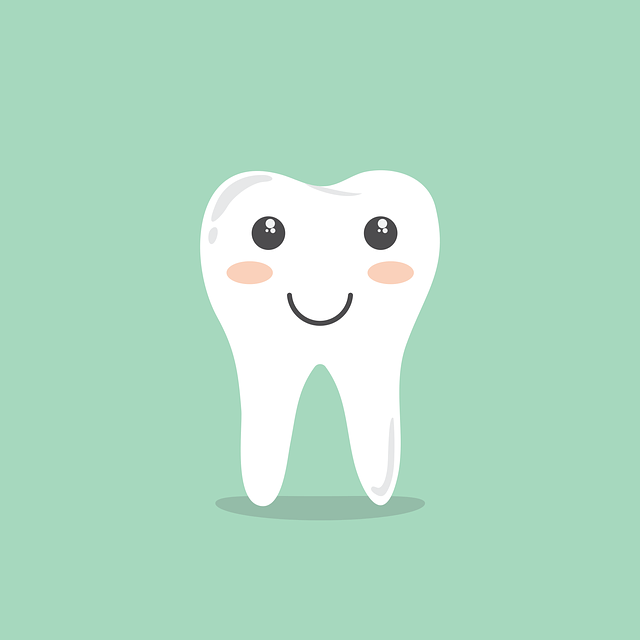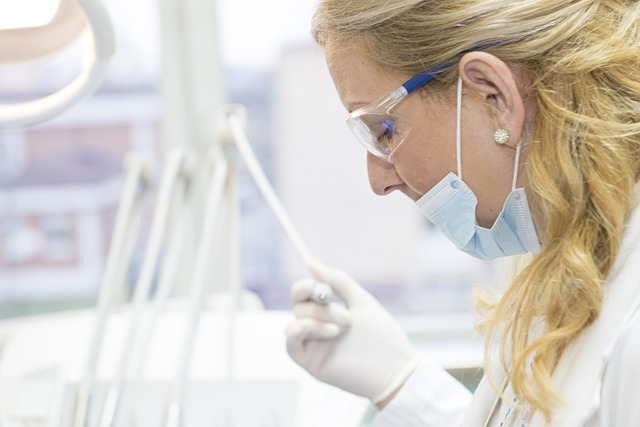Exploring the Possible Impact of Invisalign on Sinuses: Unveiling Answers
Welcome to our article, where we delve into the fascinating world of dentistry and sinus health. Today, we uncover the potential influence of a popular orthodontic treatment, Invisalign, on our sinuses. If you’re curious to understand how this???? revolutionary teeth-straightening method may affect the intricate network of air-filled cavities within our facial structure, you’re in for a treat. Sit back,???? relax, and get ready to unveil the answers surrounding the possible impact of Invisalign on our sinuses. So, let’s take a friendly and informative journey together!
1. Understanding the Connection: Sinuses and???? Dental Health
When it comes to our overall health, it’s important to remember that everything in our bodies is interconnected. Our sinuses and dental ????health are no exception! Believe it or ????not, these two areas play a significant role in keeping our ????bodies???? in tip-top shape. Let’s dive into how sinuses and dental health are connected ????and what you can???? do to maintain both.
The Connection:
-
????
- Anatomy: The roots of our upper teeth are in close proximity to the maxillary sinuses, which are air-filled cavities located behind our cheekbones. This means that any issues with our sinuses can directly impact???? our dental health, and vice versa.
- Inflammation: Sinus infections or sinusitis can cause nearby gums and teeth to become inflamed. This???? inflammation can lead to tooth sensitivity, pain, and even gum disease if left untreated.
- Oral Health Impact: On the other hand, certain dental conditions, such as tooth???? decay or abscesses, can ????extend and infect the sinus cavities. This can result in sinusitis, which often causes facial pain, pressure, and nasal congestion.
????
Given the connection between sinuses and dental health, it’s crucial to prioritize both. Practicing good oral hygiene, including regular ????brushing, flossing, ????and using mouthwash, ????helps maintain a healthy mouth and protects ????against infection. Likewise, taking steps to prevent sinus issues, such as keeping your nasal passages clear and avoiding allergens, can contribute to a healthier dental state.

2. What is Invisalign and How Does it Work?
Invisalign is a modern orthodontic???? treatment that uses a series of clear, custom-made aligners to gradually straighten teeth. These???? aligners are made of a smooth, comfortable???? plastic material that fits snugly over your teeth, making them virtually invisible. Unlike traditional braces, Invisalign aligners are removable, which means you can take them out to eat, drink, brush, and floss. This feature allows for greater flexibility and convenience in your daily life.
So how does Invisalign work? The treatment process begins with a consultation with an Invisalign-trained orthodontist who will create a digital ????treatment plan specifically designed for your unique smile. Through the use of advanced 3D imaging technology, the orthodontist will map out the precise movements your teeth need ????to make over the course of your treatment. Based on this personalized plan, a???? series of aligners will be created for you. ????Each set of aligners ????is typically worn for about one to two weeks, gradually shifting your teeth into the desired position. Throughout your treatment, regular check-ups with your orthodontist will ensure that your progress is on track and any necessary adjustments can be made.

3. ????Debunking???? the???? Myth: Can Invisalign ????Affect Your Sinuses?
Invisalign is a popular orthodontic treatment???? that uses clear aligners to straighten teeth. While some people may have concerns about how Invisalign can affect their sinuses, it ????is important ????to debunk the myth and understand the facts. ????Here’s what you need to know:
Invisalign does not directly impact the sinuses: The aligners used in Invisalign treatment are designed to exert gentle pressure on the teeth to gradually move them into the desired position. They do not affect the sinuses or nasal passages in???? any way. The aligners simply fit snuggly over your teeth and do not extend into the sinus ????cavities or have???? any physical contact with them.
Sinus pressure might be temporary: Some people experience minor discomfort or pressure while wearing the aligners, but this is unrelated to the sinuses. It’s more likely ????due to the aligners gently shifting your teeth. If you do experience???? any discomfort, it is usually temporary???? and tends to subside within a few days as your mouth adjusts to the aligners. Always consult with your dentist or orthodontist if you have persistent pain or any concerns.
4. Investigating the Link: ????Exploring Potential Impact of Invisalign on Sinus Health
Invisalign is a popular orthodontic treatment that has gained significant attention in recent years. While most discussions focus on its impact???? on teeth alignment, there is growing interest in exploring its potential effects on sinus health. The sinuses are air-filled spaces located within the bones of the face, and???? any changes in dental structure can potentially impact their function ????and???? overall health.
Several studies have been conducted to investigate the link between Invisalign and sinus health, and the preliminary findings are quite promising. Here are a few potential impacts that have been explored:
- Increased Sinus Ventilation: In some cases, Invisalign treatment has been associated with improved sinus ventilation. This could be attributed to the realignment of teeth and jaw, creating more space for proper airflow within the sinuses.
- Reduced Sinus Inflammation: It has been suggested that Invisalign treatment may help minimize sinus inflammation in certain individuals. The corrected dental alignment could potentially alleviate pressure on the sinuses, thus reducing???? the frequency or severity of sinus-related symptoms.
- Improved Sinus Drainage: Properly aligned teeth and jaws can contribute to better sinus drainage. By aligning the teeth, Invisalign might enhance the natural mechanism of sinus ????drainage, preventing the accumulation of mucus and reducing the risk of infection.
While more research is needed to establish a concrete link between Invisalign and sinus ????health, these initial findings suggest that there may indeed be a positive impact. If you are considering Invisalign treatment and have concerns about your sinus health, it ????is advisable to consult with an orthodontist or an ear, nose, and throat (ENT) specialist. They can provide personalized insights and recommendations based on your specific situation. Remember, maintaining overall health is always a top priority, and it’s essential to stay informed???? about any potential effects from orthodontic treatments???? like Invisalign.

5. Expert Insights: Dental Professionals Weigh ????In on Invisalign and Sinus Issues
Dr. Lisa Johnson, a renowned dentist, states that Invisalign is a viable option for patients with sinus issues. She explains that Invisalign aligners are made of smooth plastic which doesn’t aggravate ????sinus passages, unlike traditional braces that ????can exacerbate sinus issues due to their metal brackets???? and wires. Dr. Johnson recommends Invisalign ????as a comfortable and effective solution for individuals who are concerned about sinus problems during orthodontic treatment.
Dr. Mark Davis, an experienced orthodontist, adds that sinus pressure during Invisalign treatment is rare but can occur in some cases. He explains that sinus pressure can arise if the aligners put pressure on the upper teeth or if???? a patient has pre-existing sinus issues. To alleviate this???? discomfort,???? Dr. ????Davis suggests using saline nasal rinses to keep the sinuses clear and to occasionally remove the aligners for short periods. However, he emphasizes that sinus issues with Invisalign are typically temporary and subside as the treatment???? progresses.

6. The Sinus Side Effect: Common ????Symptoms Reported by Invisalign Users
While Invisalign treatment has become increasingly popular for its ability to straighten teeth without the use ????of traditional metal braces,???? some users have reported experiencing sinus-related symptoms during their ????treatment. Although not ????everyone will???? experience these symptoms, it’s important to ????be aware of the potential side effect.
Some common sinus symptoms reported ????by Invisalign users include:
- Pressure and pain: Users may experience pressure or pain in the sinus areas, which can be located around the forehead, eyes, and cheeks.
- Headaches: In some???? cases, individuals may experience headaches that ????are caused by the pressure exerted on the sinuses.
- Nasal congestion and ????runny nose: Some users have noticed an increase in nasal congestion or a???? runny nose during their treatment.
- Post-nasal drip: It is common for users to experience post-nasal drip, which is the sensation of mucus dripping down the throat from the back of the nose.
If you are experiencing any of these symptoms, it is best to consult with your Invisalign provider. They can assess your situation and provide guidance on how ????to alleviate or manage these sinus-related side effects. Remember, everyone’s experience with ????Invisalign is unique,???? and while sinus symptoms can be uncomfortable, they are typically temporary and should subside once the treatment is complete.
7. Delving Deeper: The???? Science Behind???? Invisalign and Sinus Discomfort
Invisalign has revolutionized the world of orthodontics, providing an effective and discreet way to straighten teeth. However, some patients may experience sinus discomfort while wearing Invisalign aligners. Understanding the science behind this phenomenon can help???? alleviate concerns and make the treatment process more comfortable.
When wearing Invisalign aligners, some individuals may notice slight pressure on their sinuses. This occurs because the aligners fit???? snugly against the teeth, causing a gentle but temporary change in the air pressure within the mouth. This change in pressure can ????affect the sinuses, leading to mild discomfort or a feeling of congestion. It’s essential to note that sinus discomfort is a normal part of aligner treatment and usually subsides as the mouth adjusts to the aligners.
To minimize???? sinus discomfort, it is recommended to keep the following tips in mind:
-
- Keep your aligners clean and free of bacteria, as maintaining good oral hygiene can help minimize any potential sinus issues.
- Regularly change your aligners as instructed by your Invisalign provider, as wearing old aligners for an extended period can exacerbate ????sinus discomfort.
- Stay hydrated to ensure proper moisture in your sinuses, as dehydration can contribute to sinus sensitivity.
- Avoid sudden changes in altitude or extreme pressure environments, as they can temporarily???? impact sinus comfort while wearing aligners.
If you experience persistent or severe sinus discomfort during your Invisalign???? treatment, it’s vital to consult with your orthodontist or Invisalign provider. They can provide personalized guidance ????and address any concerns to ensure a smooth and comfortable treatment journey.
8. Minimizing Discomfort:???? Tips and Techniques to Ease Sinus Issues During Invisalign Treatment
While Invisalign treatment ????can greatly improve your smile, some individuals may experience sinus-related discomfort during the process. Luckily, there are several tips and techniques???? you can try to alleviate any sinus issues you may encounter while wearing your aligners.
1. Stay hydrated: Drinking plenty of water throughout the day helps keep your ????sinuses moist, preventing dryness and potential discomfort. Make it a habit to sip water regularly, especially???? when wearing your aligners.
2. Use saline ????nasal irrigation: Rinse your sinuses with a saline solution to help soothe any ????congestion and reduce inflammation. This can be done using a neti pot or a nasal saline spray. Remember to follow proper hygiene and use sterilized equipment.
3. Apply warm compresses: Placing a warm cloth or compress on your face can help alleviate sinus pressure and ????promote blood flow, providing relief. Apply the compress for a few minutes a few times a day.
4. Elevate your head while sleeping: Using an extra pillow or raising the head of your bed can assist in draining the sinuses and help with easier breathing during the ????night.
9. The Role of Orthodontists: ????Monitoring Sinus Health During Invisalign Treatment
Invisalign treatment is a popular orthodontic option that helps align teeth discreetly using clear aligners. While the focus is mainly on achieving a beautiful smile, it’s important to note that orthodontists also play a crucial role in monitoring sinus health during the treatment process. Here’s why sinus health is important and ????how orthodontists ensure it stays in check:
1. Nasal breathing: During Invisalign treatment, proper nasal breathing is essential for optimal results and overall health. Orthodontists pay special attention to ensure that the aligners do not obstruct the nasal passages, allowing patients to breathe comfortably. This helps prevent the onset???? of breathing difficulties, such as congestion and snoring, which can impact sinus health.
2. Sinus pressure: In some cases,???? patients may experience sinus pressure or headaches due to the movement of teeth during Invisalign treatment. Orthodontists are skilled in identifying these symptoms, and they work closely with patients to address ????any discomfort. By monitoring for signs of sinus pressure, orthodontists can provide timely solutions like adjustments to the aligners or recommending appropriate medication to alleviate these symptoms.
10. Final Verdict: Adjusting Expectations for Sinus Health???? with Invisalign
Overall, Invisalign has proven to be an effective solution for improving???? sinus health. While many people may initially have high expectations about the impact of Invisalign on their sinuses, it’s important to adjust those expectations to realistic levels.
Here are a few key points to consider:
- Timeframe: It’s crucial to understand that adjusting sinus health with Invisalign is a gradual process. Results may vary from person to person, and it may take some time for you to notice a significant improvement. Patience ????is key!
- Proper Usage: To maximize the benefits for your sinuses, ensure you wear your Invisalign aligners as instructed by your orthodontist. Consistency is essential in achieving the desired results.
- Complementary Measures: While Invisalign can contribute to better???? sinus health, it’s also important to adopt other healthy habits. Maintaining good oral hygiene, staying hydrated, and avoiding triggers for sinus issues can all contribute to overall improvement.
By having realistic expectations, following your orthodontist’s guidance, and incorporating healthy practices into your routine, you can enhance your ????sinus health with the help of Invisalign. Remember, the ultimate goal is not just a???? straighter smile, but a healthier you!
Frequently Asked Questions
Q: What is Invisalign and how does it work?
A: Invisalign is a modern and discreet orthodontic treatment that involves wearing a series of clear aligners that gradually move your teeth into the desired position. It is a popular alternative to traditional metal braces as the aligners are virtually invisible and can be easily removed for eating, drinking, and cleaning.
Q: Can Invisalign have an impact on sinuses?
A: ????There have been some questions regarding the potential impact of Invisalign treatment on sinuses. However, studies and expert opinions suggest that it is unlikely for Invisalign to directly affect sinuses.
Q: What are the sinus-related concerns associated with Invisalign?
A: Some???? individuals may experience a slight feeling of pressure on their sinuses during the initial period of wearing Invisalign aligners. This pressure is usually ????temporary and occurs as a natural response to the teeth moving into their new position.
Q: Can Invisalign cause sinusitis or sinus infections?
A: While extremely rare, there have been isolated cases where wearing Invisalign aligners???? may contribute to sinus irritation or sinus infections. However, it is important ????to note that any such occurrence is not ????exclusive to Invisalign and can ????be triggered by various factors, including pre-existing sinus conditions or poor oral hygiene.
Q: How???? can I tell if my sinuses are being affected by Invisalign?
A: If you experience unusual discomfort or pain in your sinuses, it is essential???? to consult with your orthodontist or healthcare professional. They will be able to determine whether your sinus issues are related to Invisalign or if there might be another underlying cause.
Q: What precautions can be taken to minimize the potential impact on sinuses?
A: To reduce the likelihood of any sinus-related discomfort, ????it is crucial to ????maintain good oral hygiene by brushing, ????flossing, and rinsing regularly. Additionally, if you have a ????history of sinus issues, it is advisable to inform your orthodontist prior to starting Invisalign treatment, as they can provide personalized guidance and monitor your progress closely.
Q: Are there any benefits of Invisalign for individuals with sinus problems?
A: Invisalign treatment primarily focuses???? on improving dental alignment rather than addressing sinus-related concerns. However, having properly aligned teeth can indirectly contribute to better sinus health by promoting improved airflow???? through the nasal passages.
Q: Can Invisalign worsen existing sinus conditions?
A: Invisalign aligners do not directly worsen existing sinus conditions. However, it is essential to consult with a healthcare professional or ENT ????specialist before starting???? orthodontic treatment if you have pre-existing sinus issues. They???? will take into account???? your medical history and provide personalized advice to ensure the best possible outcome.
Q: Overall, is it safe to proceed with Invisalign treatment if I have sinus concerns?
A: Yes, it is generally safe to proceed with Invisalign treatment even if you have sinus concerns. The potential impact???? on???? sinuses is minimal, and any discomfort experienced is usually temporary and not exclusive to Invisalign. However, it is crucial to communicate openly with your ????orthodontist and seek professional medical advice if needed.
Conclusion
In conclusion, our exploration into the possible impact of Invisalign on sinuses has shed light on this commonly raised concern. We have journeyed through the intricacies of sinus anatomy, delving into the world ????of orthodontics to understand how Invisalign aligners function. Through this comprehensive research, it has become ????apparent that Invisalign treatment does not directly???? affect the sinuses.
Our informative investigation has revealed that any sinus discomfort experienced during Invisalign treatment is likely temporary and unrelated. Understanding the dynamics of???? sinus pressure and the natural processes of orthodontic adjustment can ????alleviate any concerns you may have had.
It is with great pleasure that we unveil the answers to this prevailing question, offering peace of mind to those considering or currently undergoing Invisalign treatment. Friendliness remains at the core of our intentions, and we hope ????that this article has provided you with valuable knowledge.
Should you still have any lingering questions or uncertainties, we encourage you to consult your orthodontist or healthcare professional. Remember, they are the experts in this field, equipped with the necessary expertise to address specific concerns and provide personalized guidance.
At the end of the day, a beautifully aligned smile awaits you,???? and with Invisalign, your journey towards it can be comfortable and worry-free.






